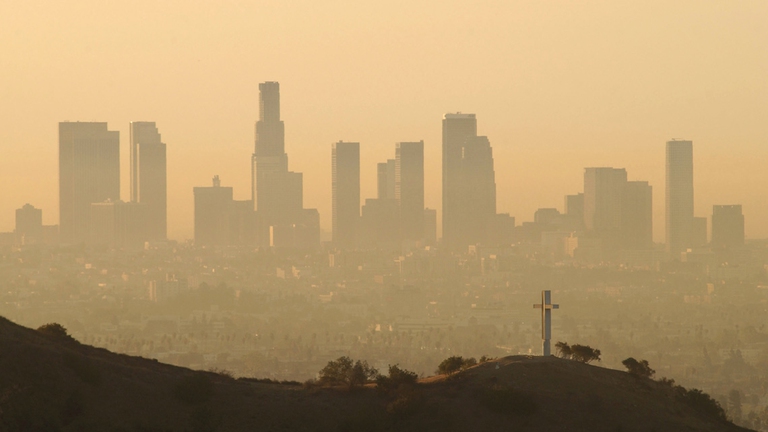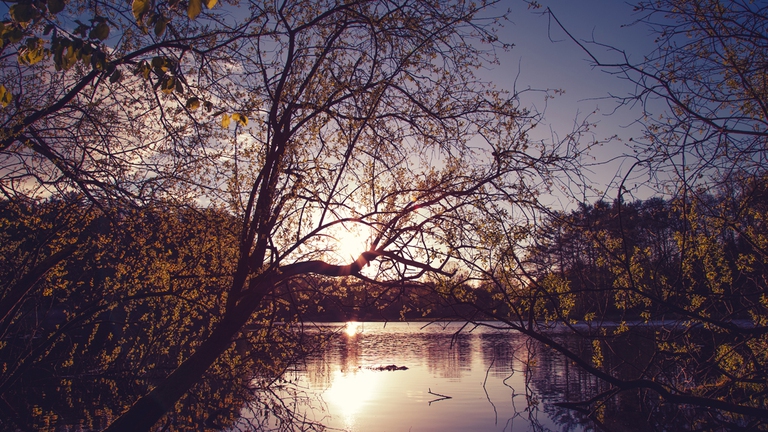
Sharon Lavigne, one of the six winners of the 2021 Goldman Environmental Prize, is fighting to protect her community from plastics corporations.
Heat waves and high rates of air pollution in cities account for millions of deaths every year. Trees are a partial solution to this problem: they cool the air and reduce PM levels.
In 2003 more than 20,000 people across Europe died as a result of a heat wave – so many that the city of Paris had to start renting refrigerator space from vegetable vendors to store bodies that could no longer fit in the city morgue. Climate change models suggest that by midcentury, this level of extreme heat could become a regular occurrence.
Meanwhile, air pollution rates in cites worldwide are reaching alarming levels. Through my work with The Nature Conservancy’s global cities programme, I’ve traveled to Beijing and Mumbai over the past year, experiencing the low visibility and irritated throat that I’ve come to expect in some of the world’s fastest-growing urban areas. But it was my holiday visit to family and friends in Milan that really opened my eyes. The air was so bad last Christmas that cars were banned from the city centre.
Half of all the people on Earth today live in a city, and that percentage is on the rise. But extreme heat and polluted air pose a public health crisis, increased risk of asthma, heart disease and stroke. One study projects that by 2050 more than 6 million people will die as a result of ambient air pollution per year.
New research by Rob McDonald, Lead Scientist for The Nature Conservancy’s Global Cities programme, offers an affordable and effective short-term solution: plant more urban trees. The new Planting Healthy Air study finds that an annual investment of just 4 dollars per resident in 245 of the world’s largest cities could improve the health of millions of people, and save as many as 36,000 lives each year.
Trees can’t solve these daunting challenges alone – we need collective global action on climate change, transportation innovation and investments in clean energy – issues taking centre stage at COP22, the United Nations climate change conference in Marrakech, Morocco. But at the neighbourhood level trees can cool streets by several degrees and serve as a filter that reduces particulate matter pollution by a quarter, making a significant difference in people’s lives.
While The Nature Conservancy study shows that densely populated cities such as Delhi and Karachi rank high globally for the potential benefit from tree planting, it also indicates that every city has neighbourhoods where street trees can benefit local residents. Planting trees between a motorway and a hospital or school, for instance, can offer immediate protection while national and city leaders work to reduce pollution levels.
Scientists have long known that street trees can have a measurable effect, but without solid data on costs, benefits and where exactly trees can have the biggest impact, leaders haven’t been able to successfully advocate for tree planting. This new data does just that, and the Conservancy will soon be using these findings to launch a new tree planting effort in several US cities through the Healthy Trees, Healthy Cities programme. The hope is that municipal leaders worldwide will consider doing the same.
Too often, as we consider the complexity of planning sustainable cities, we overlook the simple truth: trees can save lives.
Siamo anche su WhatsApp. Segui il canale ufficiale LifeGate per restare aggiornata, aggiornato sulle ultime notizie e sulle nostre attività.
![]()
Quest'opera è distribuita con Licenza Creative Commons Attribuzione - Non commerciale - Non opere derivate 4.0 Internazionale.
Sharon Lavigne, one of the six winners of the 2021 Goldman Environmental Prize, is fighting to protect her community from plastics corporations.
Plastic pollution is airborne too. Microplastics are being carried across continents by the wind, as a recent study reveals.
Levels of particulates in New Delhi in 2020 were once again far above safety thresholds, with extremely serious health consequences for its citizens.
A major oil spill in the Ecuadorian Amazon in April has left the Coca River polluted. The indigenous Kichwa are suing the companies whose pipelines broke.
Molecules that eat up plastic waste, including PET bottles, may soon become widely used as scientists leap ahead in developing new super enzymes.
In Italy’s Land of Fires between Naples and Caserta, activists like Carmen Medaglia are fighting to promote new ways of managing waste.
Toxic substances in Kamchatka’s waters have killed 95% of marine fauna and caused health problems for surfers. The causes, however, are still unknown.
A Magellanic penguin was found lifeless on a Brazilian beach: in its stomach, an N95 face mask. Researchers believe the animal died from ingesting it.
The drop in air pollution during worldwide lockdowns helped prevent thousands of premature deaths. But the situation is returning to pre-crisis levels.










